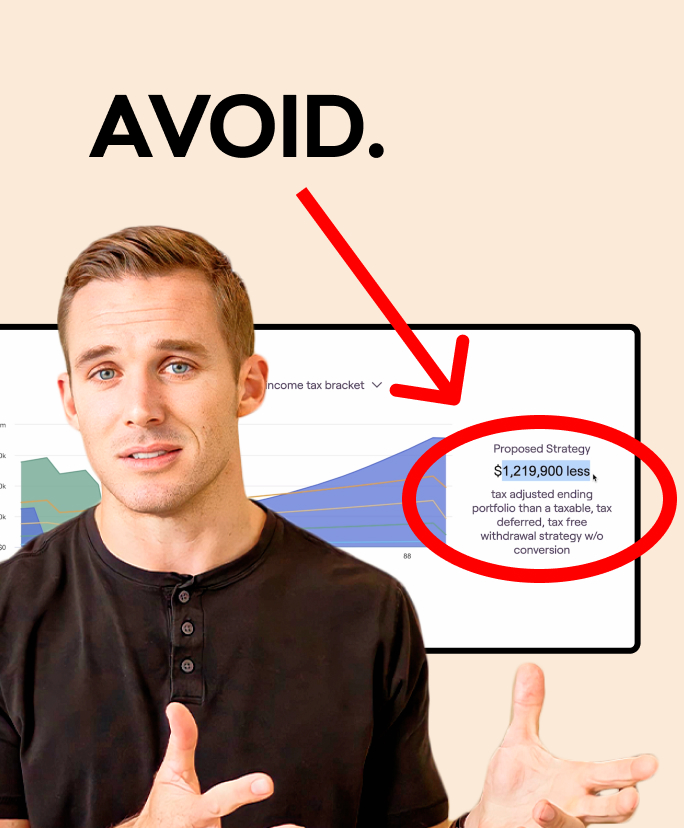If you could sit down with your 80-year-old self—someone who’s wiser, more reflective, and decades removed from where you are today—what advice do you think they’d give you?
You may never get that conversation, but as a financial advisor, I get a front-row seat to it. Every week, I talk to clients in their 70s and 80s who reflect on what they wish they’d done differently in their 50s and 60s. What they share isn’t just advice about retirement. It’s about living well, now.
Here are the three lessons I hear most often—and why they matter long before you stop working.
Lesson 1: True Wealth Isn’t Just About Money
We often talk about “wealth” as if it only refers to money. But my clients have shown me that’s only part of the picture. They break it down into three types of wealth:
- Financial wealth: Your net worth, investments, 401(k), bank account.
- Time wealth: The freedom to spend your time how you want.
- Health wealth: The ability to enjoy your life physically, mentally, and emotionally.
The Warren Buffett Test
Would you trade places with Warren Buffett? He’s worth over $100 billion—but he’s in his 90s. Even with all that money, most of us wouldn’t trade our youth, time, or health for his wealth. That’s because we instinctively understand that money without time and health isn’t freedom.
A quote I love puts it perfectly:
“A healthy man has a thousand desires. A sick man has only one.”
Why This Matters in Your 50s and 60s
If you’re in your 50s or 60s, you may be at the one point in life where you still have all three types of wealth—financial, time, and health. But this window won’t stay open forever.
Too many people keep working, saving, and grinding through their 50s and early 60s, hoping to hit one more financial milestone… and they miss their shot at living fully while they still can. Clients in their 70s often tell me they wish they’d paused to realize: “That was the time I could’ve traveled, hiked, played with grandkids, or simply relaxed with energy and vitality.”
If that’s where you are now—this is your moment. Don’t miss it.
Lesson 2: Have a Plan for Financial Independence—Not Just Retirement
So why do so many people miss that sweet spot in life? Because they never created a plan. They just kept saving without knowing what it was all for.
The Trap of “One More Year”
I’ve worked with dozens of people who were burned out at work, unsure of what came next, but still grinding because they thought they had to. Then we ran the numbers… and found they were already financially independent.
And in that moment, everything shifted.
Suddenly, they could breathe. They weren’t desperate to quit tomorrow—but they knew they could. Work became optional. Stress went down. Their joy in day-to-day life went up.
That’s the power of a financial plan—not because it tells you when to retire, but because it gives you the freedom to choose.
Know What You’re Working Toward
If you don’t know your financial independence number—or haven’t mapped out your withdrawal strategy, Social Security options, or retirement income plan—you’re flying blind. And that uncertainty often causes people to overwork, over-save, and under-live.
A plan isn’t the end goal. But it’s the launch pad to everything else you want to pursue.
Lesson 3: Pursue the Things Money Can’t Buy
Once you know you’re financially independent, the real work begins. Your 80-year-old self would tell you: spend your time and energy on what money can’t buy.
A fit body. A calm mind. A house full of love. None of those are for sale. But every one of them is worth the effort.
The Tragedy of Waiting Too Long
One of the hardest moments of my career came when a wonderful client finally retired after a lifetime of careful saving. She had done everything right financially… but passed away within 12 months of retiring. Her biggest regret—if she had the chance—might’ve been this: I wish I’d prioritized my health as much as I prioritized my 401(k).
This isn’t just about retirement. It’s about life. Start now.
What Science Says About Living Well in Retirement
Want to know what leads to a healthy, fulfilling retirement? Here’s what research tells us—and how to act on it.
1. Keep Challenging Your Brain
Your brain’s ability to grow doesn’t stop with age. It’s called neuroplasticity—your brain’s way of rewiring through new learning, experiences, and habits.
You don’t lose your curiosity because you’re older. You lose it because you stop using it. Try new things. Learn something new. It keeps you sharp—and expands your sense of purpose.
2. Move Your Body
Mental health and physical health are connected. A walk, a workout, a bike ride—they don’t just help your heart. They boost creativity, reduce anxiety, and fuel optimism. Movement matters.
3. Stay Socially Connected
People with strong relationships live longer, healthier lives. Whether it’s deep friendships, your family, or new community groups, connection is everything in retirement.
And no, that doesn’t mean being social 24/7. It just means maintaining a support system that gives you energy, encouragement, and purpose.
Don’t Let These Three Things Limit You
If you want to maintain your brain’s growth, avoid the three biggest barriers to a fulfilling retirement:
- Chronic stress – especially from staying in a job you don’t need
- Lack of stimulation – doing the same things every day
- Negative self-beliefs – telling yourself “I’m too old to change”
You’re not. And your 80-year-old self will thank you for believing that.
Reframe Retirement: From Rest to Growth
Too many people view retirement as a time to slow down and rest. And yes, there’s space for that. But don’t stop there.
Retirement should be about growth, purpose, and joy.
It’s your opportunity to design the life you want—and finally live it on your terms.
Try This:
- Join a new class (anything from photography to dancing)
- Volunteer in your community
- Travel somewhere new—not just your usual spot
- Learn meditation or memory techniques
- Do anything new that stretches you
You don’t have to love it all. That’s not the point. The point is to build the habit of trying. The more you explore, the more clarity you’ll gain on what makes life meaningful to you.
The Final Word from Your Future Self
Here’s the truth: your 401(k) balance matters. Your investment strategy matters. But if you don’t also invest in your health and your relationships, you’re missing the point.
Ask yourself: If I were 80 and looking back on this moment, what would I wish I had done differently?
Then do it now.
The information presented is for educational and informational purposes only and should not be construed as personalized investment or financial advice. The content discusses general retirement and life planning strategies and is not intended to recommend any specific course of action for any individual.
Examples provided are hypothetical and for illustrative purposes only. They do not reflect any specific client situation and should not be relied upon for investment decision-making. Past performance of investments is not indicative of future results. All investing involves risk, including the potential loss of principal.
Root Financial Partners, LLC provides tax planning as part of its financial planning services. However, we do not provide tax preparation services, represent clients before the IRS, or offer legal advice.
Clients should consult their CPA or attorney before implementing any investment, tax, or legal strategies discussed. Nothing in this content should be interpreted as a recommendation to take a specific tax position or legal action.


